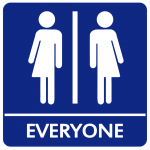 Sometimes, while teaching German, students ask why German nouns change genders. It is ‘die Tür’, a feminine noun, and suddenly somewhere mid-sentence, it is ‘der Tür’. ‘Der’ is the definite article for masculine nouns. Do German nouns have gender identity issues? A justifiable question from an unsuspecting student or an intelligent question from a grind? Justifiable, of course, and it confuses most learners of German. Nouns don’t change gender, but the apparent change of gender, the changing of articles, is due to their declension. ‘Die’ is ‘der’ in the feminine singular dative, ‘der’ ist ‘den’ in the masculine singular accusative case. Below is a table with the declension of definite articles to help you master German.
Sometimes, while teaching German, students ask why German nouns change genders. It is ‘die Tür’, a feminine noun, and suddenly somewhere mid-sentence, it is ‘der Tür’. ‘Der’ is the definite article for masculine nouns. Do German nouns have gender identity issues? A justifiable question from an unsuspecting student or an intelligent question from a grind? Justifiable, of course, and it confuses most learners of German. Nouns don’t change gender, but the apparent change of gender, the changing of articles, is due to their declension. ‘Die’ is ‘der’ in the feminine singular dative, ‘der’ ist ‘den’ in the masculine singular accusative case. Below is a table with the declension of definite articles to help you master German.
| case | masc. | fem. | neut. | plural |
| nominative | der | die | das | die |
| accusative | den | die | das | die |
| dative | dem | der | dem | den |
| genitive | des | der | des | der |

One thought on “Do German nouns have gender identity issues?”